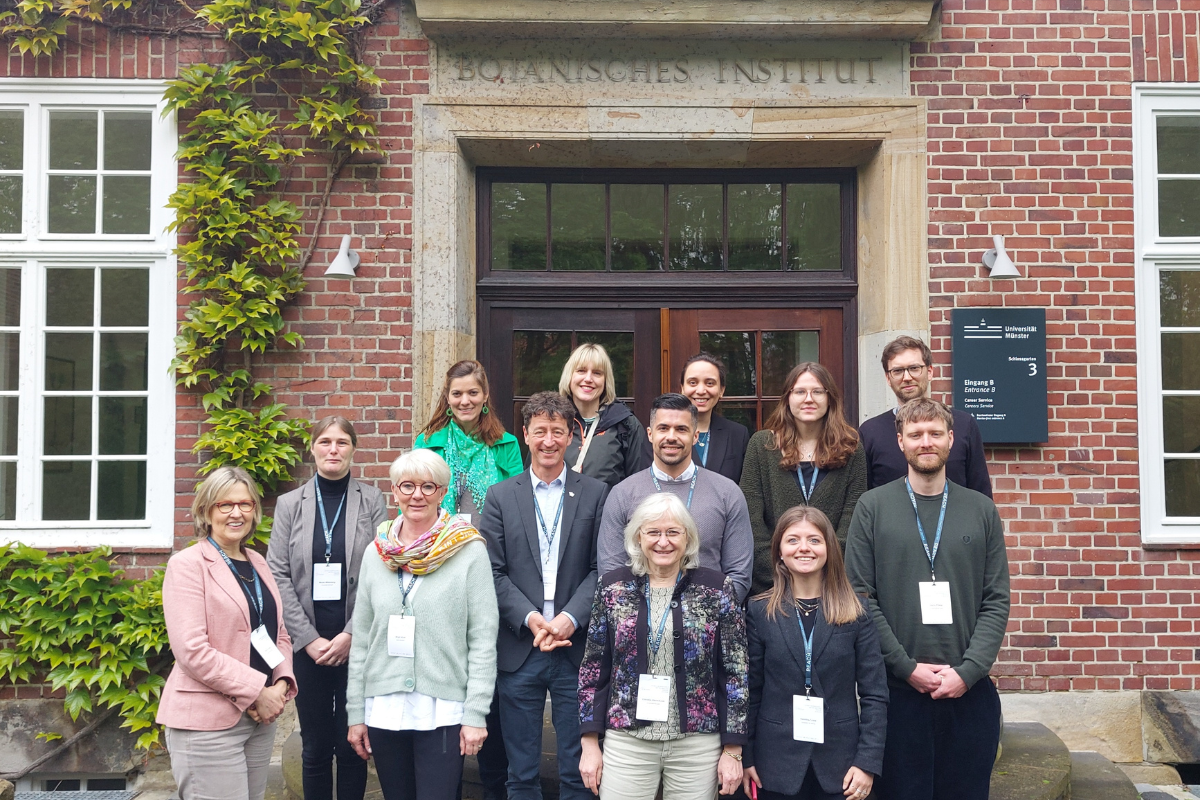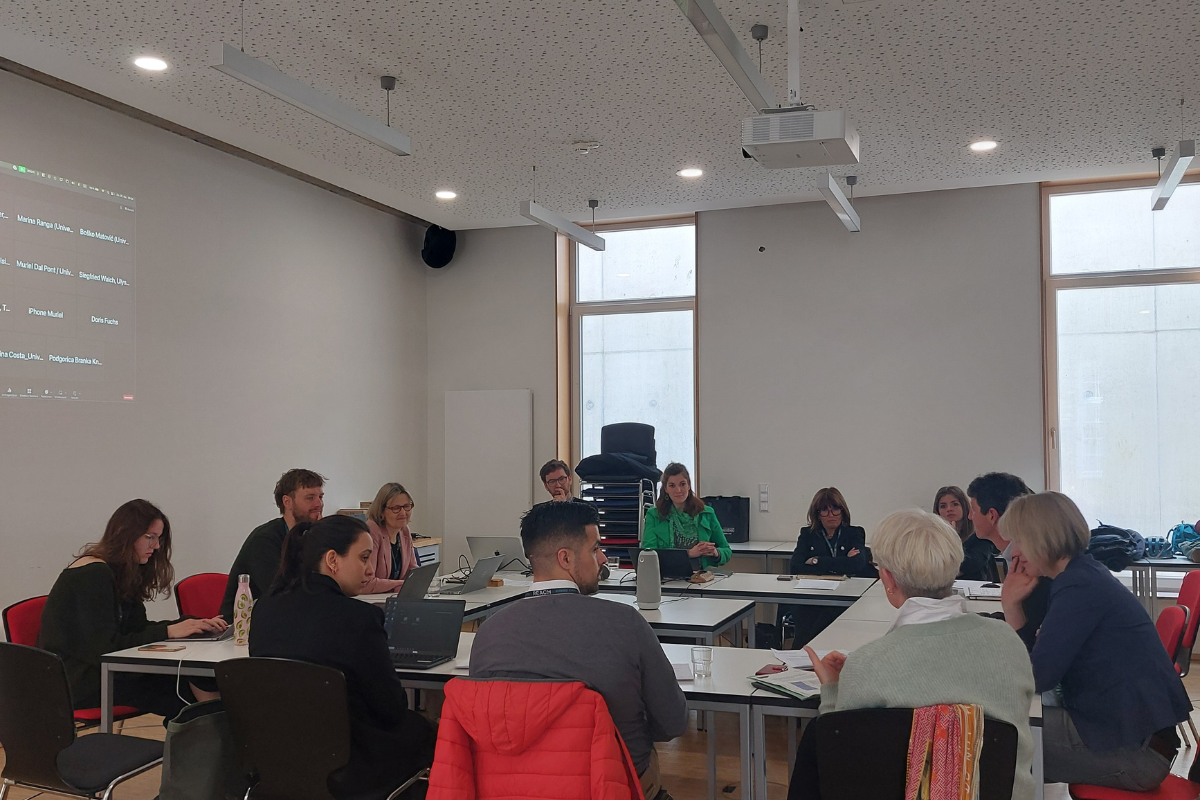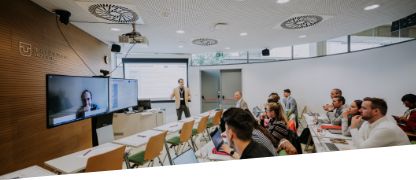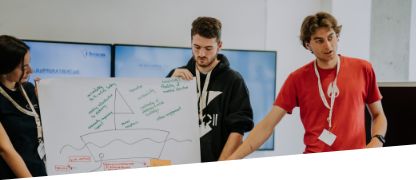First innovation-driven territorial transformation workshop on climate change challenges and solutions
The event European Universities as Motor for Interregional Cooperation & Cities 2030 Mission hosted by the University of Muenster provided a platform for exchanging expertise and best practice examples to address climate change in Ulysseus cities and regions and to foster cooperation on this issue.

On April 25th 2024, the University of Münster organised a hybrid event focusing on the climate protection measures of the individual Ulysseus cities and regions (Work Package 5, Task 5.6.). Based on the idea that joint action is essential in the fight against the climate crisis, the event served as a forum for participants from all Ulysseus regions to share valuable insights, strategies and experiences in the engagements against climate change. Through presentations, discussions and collaborative sessions, participants explored the scientific, societal and political aspects of climate action and highlighted the challenges and opportunities associated with implementing effective measures. The event served as a first step in laying the groundwork for deeper understanding and collaboration within the Ulysseus network.

The event began with an introduction to the topic by Prof. Dr. Tillmann Buttschardt and Prof. Dr. Doris Fuchs, both Chief Scientific Officers (CSO) of the Innovation Hub Social-ecological Sustainability. They discussed both the scientific aspects and the societal and political dimensions of climate change issues. A lively discussion followed, touching on the challenges of implementing transformational change.
The next session focused on cooperation within the Ulysseus project. Presenters from all Ulysseus regions shared insights into their respective climate efforts, highlighting strategies, challenges and ongoing initiatives to achieve climate neutrality. This helped all Ulysseus partners to gain a better understanding of each other’s regions and activities. Participants then engaged in discussions to identify commonalities and differences between the cities and to explore potential areas for exchange and cooperation between cities, regions and universities. This was followed by a walking tour of Münster, during which various regional projects were presented. This gave participants an impression of how projects are actually implemented in Münster.
In conclusion the event served as a crucial platform for exchanging expertise and best practices in addressing climate change across Ulysseus cities and regions. Participants from diverse backgrounds shared valuable insights, strategies, and experiences, fostering cooperation to combat the climate crisis collectively. Overall, the event laid the groundwork for deeper collaboration within the Ulysseus network, marking a significant step towards collective action against climate change.






